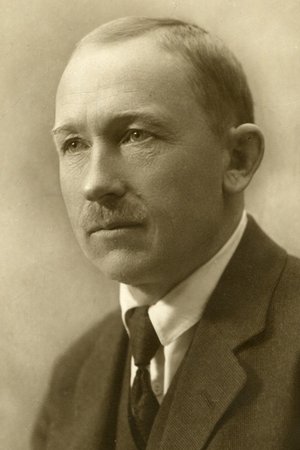
A. H. Tammsaare
Anton Hansen (January 18, (O.S.) / January 30, 1878 – March 1, 1940), better known by his pseudonym A. H. Tammsaare and its variants, was an Estonian writer whose pentalogy Truth and Justice (Tõde ja õigus; 1926–1933) is considered one of the major works of Estonian literature and "The Estonian... Novel". Tammsaare was born in Järvamaa, in the municipality of Albu, village of Vetepere, Estonia. The son of a farmer, he came from a poor background but managed to collect enough money for his education. His family was quite enlightened for the time, with his father ordering newspapers, which was something most Estonian farmers didn't do. He studied in Väike-Maarja and Tartu at the Hugo Treffner Gymnasium, and afterward at the University of Tartu where he studied law. Tammsaare's studies were interrupted by tuberculosis in 1911. He spent over a year in a sanatorium in Sochi – where his memorial house is open to the public – and the following six years in his brother's farm in Koitjärve, Estonia (now part of Põhja-Kõrvemaa Nature Reserve), reading works of Cervantes, Shakespeare and Homer. His younger sister, Maria Hansen, was the mother of Tammsaare's nephew, actor Arno Suurorg. In 1918, when Estonia became independent, Tammsaare moved to Tallinn. It was here that Tammsaare wrote prose works based on the history and lives of the Estonian people that gained him a prominent place in Estonian literature. Tammsaare was interested in philosophy and psychology. His novels reflect the ideas of Bergson, Jung and Freud . He was, however, skeptical about cosmopolitanism. "European culture" he wrote, "is something to be overcome if one wishes to see the triumph of love, justice, and humanity spoken of so glibly". Like Carl Robert Jakobson and Jaan Tõnisson's Tartu Renaissance group, he believed that Estonian culture was best served by farmers and intellectuals from rural backgrounds. His work was influenced at various stages by Oscar Wilde, Knut Hamsun and André Gide, but, above all, the Russian realists. "In the whole of world literature," said Tammsaare, I have never read anything to compare to the Russians... there is no one to compare to Tolstoy, Dostoevsky or Gogol"... Dostoevsky "really disturbed me: I lived in a waking dream under his influence. I was especially gripped by Crime and Punishment. Tammsaare's early works are characterized by rural "poetic" realism. Some of his stories also reflect the atmosphere of the revolutionary year of 1905. During what is sometimes classified as his second period, from 1908 to 1919, he wrote several short urban novels and collections of miniatures. In "Poiss ja liblikas" (1915, The Boy and the Butterfly), Tammsaare shows the influence of Oscar Wilde. Internationally best known is his last novel, Devil with a False Passport ("Põrgupõhja uus Vanapagan"). His novel Truth and Justice was not translated into English until 2014, when Haute Culture Books published the first volume of the saga under the names "Andres and Pearu". There are two complete translations into German and one each into French, Latvian, and Czech. Volume 1 has also been translated into Finnish, Polish, and Hungarian (with the title, Orcád verítékével).
Also Known As:
Anton Hansen TammsaareA.H. Tammsaare